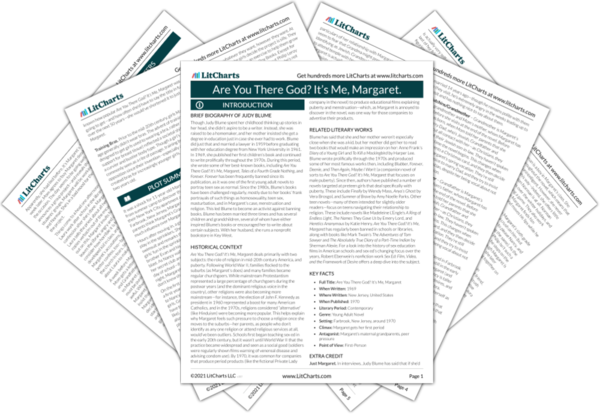AI ToolsNew
Tools to make learning and teaching easier
|
Previous
Chapter 18
|
Are You There God? It’s Me, Margaret.: Chapter 19 Summary & Analysis |
Next
Chapter 20
|


Upgrade to unlock the analysis and theme tracking for all of Are You There God? It’s Me, Margaret.Are You There God? It’s Me, Margaret.!
Get LitCharts A+